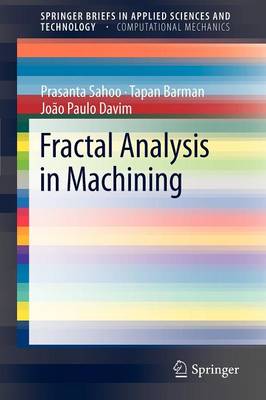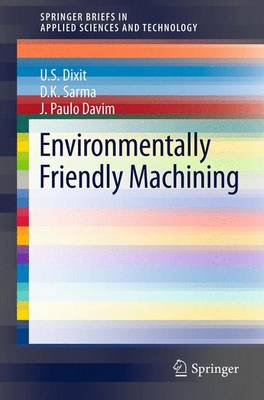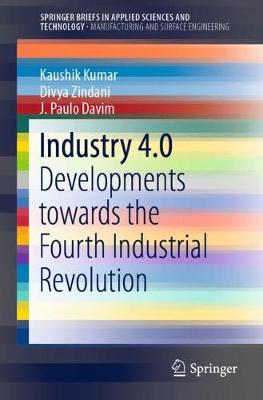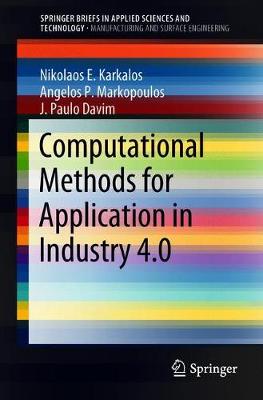SpringerBriefs in Applied Sciences and Technology
5 total works
Fractal Analysis in Machining
by Prasanta Sahoo, Tapan Barman, and J. Paulo Davim
Environmentally Friendly Machining
by U.S. Dixit, D.K. Sarma, and J. Paulo Davim
Hybrid Modeling and Optimization of Manufacturing
by Quiza Ramn, Lpez-Armas Omar, and J. Paulo Davim
Artificial intelligence (AI) techniques and the finite element method (FEM) are both powerful computing tools, which are extensively used for modeling and optimizing manufacturing processes. The combination of these tools has resulted in a new flexible and robust approach as several recent studies have shown. This book aims to review the work already done in this field as well as to expose the new possibilities and foreseen trends. The book is expected to be useful for postgraduate students and researchers, working in the area of modeling and optimization of manufacturing processes.
Computational Methods for Application in Industry 4.0
by Nikolaos E. Karkalos, Angelos P. Markopoulos, and J. Paulo Davim
This book presents computational and statistical methods used by intelligent systems within the concept of Industry 4.0. The methods include among others evolution-based and swarm intelligence-based methods. Each method is explained in its fundamental aspects, while some notable bibliography is provided for further reading. This book describes each methods' principles and compares them. It is intended for researchers who are new in computational and statistical methods but also to experienced users.




